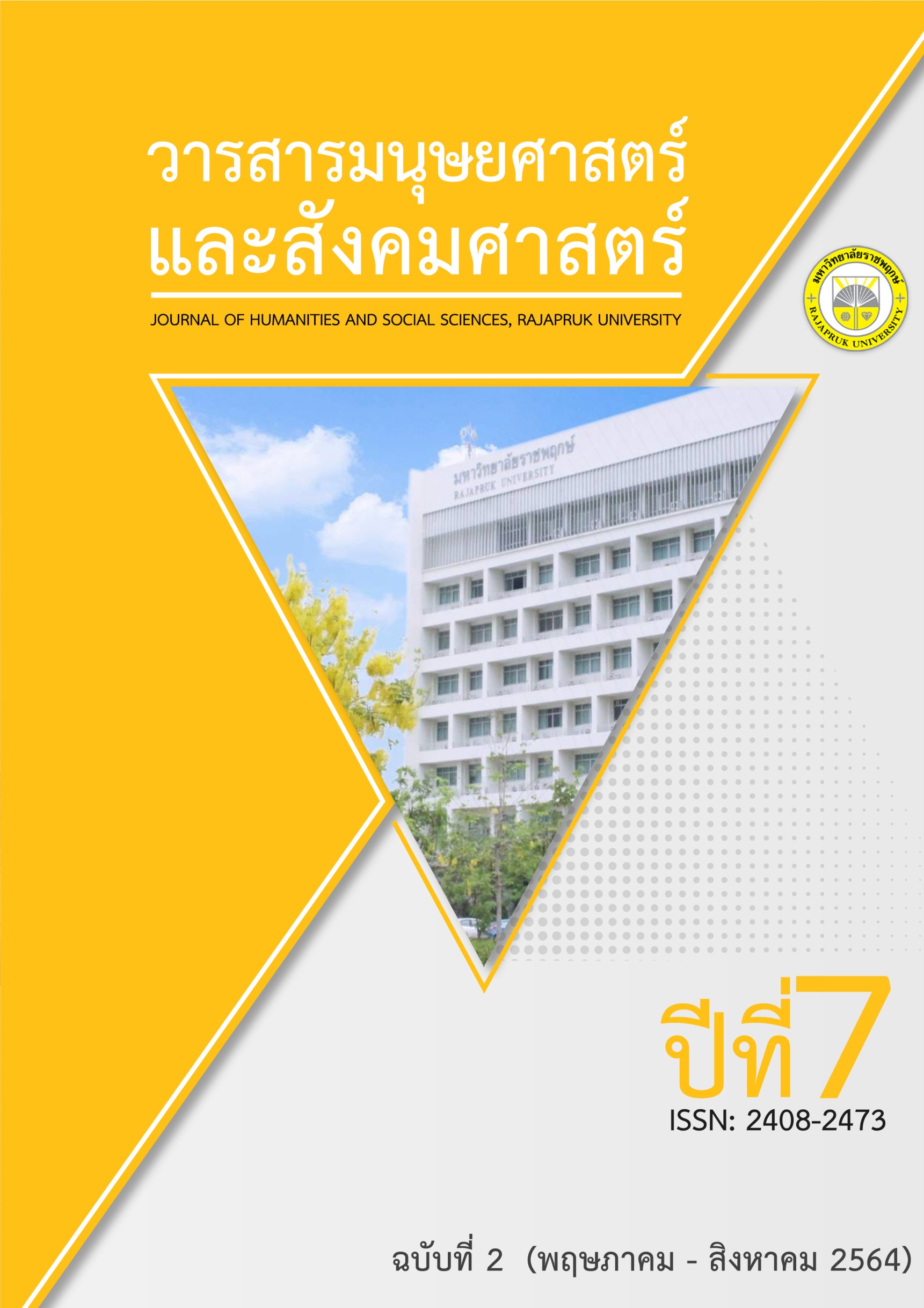The Priority Needs of School Management Development of Bangkok Metropolitan Schools in Nongkhaem District Office Based on the Concept of Total Quality Management
Main Article Content
Abstract
The objective of this research was to study the priority needs of school management development of Bangkok Metropolitan schools in Nongkhaem district office based on the concept of total quality management. The populations were 6 Bangkok Metropolitan schools in Nongkhaem district. The research informants consisted of 207 school administrators and teachers (school director 1 person, deputy school director 10 persons and teacher 196 persons) by simple random sampling. The research instrument used in this study was a 5 rating-scaled questionnaire. The data were analyzed by frequency distribution, percentage, mean, standard deviation, and Modified Priority Needs Index (PNIModified).
The research results turned out as follows. The priority needs of school management development of Bangkok Metropolitan schools based on the concept of total quality management, sorted from the highest to the lowest PNIModified revealed that: 1) Implementing (PNIModified=0.435) with the highest priority need on continuous improvement (PNIModified=0.490) and the lowest priority need on social network (PNIModified=0.391);
2) Evaluating (PNIModified=0.425) with the highest priority need on continuous improvement (PNIModified=0.490), while the lowest priority need on social network (PNIModified=0.375);
3) Planning (PNIModified=0.375) with the highest priority need on continuous improvement (PNIModified=0.413) and the lowest priority need was participation from community members (PNIModified=0.347).
Article Details
References
ณัฏฐพันธ์ เขจรนันทน์. (2545). TQM กลยุทธ์การสร้างองค์การคุณภาพ. กรุงเทพฯ: เอ็กซเปอร์เน็ท.
วีระยุทธ ชาตะกาญจน์. (2556). เทคนิคการบริหารสำหรับนักบริหารการศึกษามืออาชีพ. พิมพ์ครั้งที่ 4. กรุงเทพฯ: จุฬาลงกรณ์มหาวิทยาลัย.
ศุภชัย ยาวะประภาษ. (2539). การปรับปรุงกระบวนงานอย่างต่อเนื่อง:กลยุทธ์ในการเพิ่มคุณภาพบริการภาครัฐ. กรุงเทพฯ: พิมพ์ดี.
สมบูรณ์ พรรณาภพ. (2521). หลักเบื้องต้นของการบริหารโรงเรียน (Introduction to School Administration). กรุงเทพฯ: บรรณกิจ.
สำนักการศึกษา กรุงเทพมหานคร. (2562). รายงานการจัดการศึกษาของกรุงเทพมหานคร ปี 2562. กรุงเทพฯ: บริษัท สยาม วี อินเตอร์พริ้นท์ จำกัด.
สำนักงานคณะกรรมการการศึกษาแห่งชาติ สำนักนายกรัฐมนตรี. (2542). พระราชบัญญัติการศึกษาแห่งชาติ พ.ศ.2542 และที่แก้ไขเพิ่มเติม (ฉบับที่ 2) พ.ศ.2545.
สำนักยุทธศาสตร์และประเมินผล กรุงเทพมหานคร. (2562). แผนปฏิบัติราชการกรุงเทพมหานคร ประจำปี 2563. กรุงเทพมหานคร.
สุภาวรรณ โชติผล. (2547). การศึกษาการบริหารงานโรงเรียนในเครือภคินีคณะธิดาแม่พระองค์อุปถัมภ์. วิทยานิพนธ์ปริญญาครุศาสตรมหาบัณฑิต สาขาวิชาบริหารการศึกษา ภาควิชานโยบาย การจัดการ และความเป็นผู้นำทางการศึกษา คณะครุศาสตร์ จุฬาลงกรณ์มหาวิทยาลัย.
Murgatroyd, S. and C. Morgan. (1993). Total Quality Management and the School. Buckingham: Open University.
Newby, T. J., Stepich, D. A., Lehman, J. D., & Russell, J. D. (2000). Educational Technology for Teaching and Learning. (2nd ed.) Upper Saddle River, NJ: Merrill/Prentice-Hall.
Shiba, S., A. Graham, and D. Walden. (1993). A New American TQM: Four Practical Revolutions in Management. Portland, Oregon: Productivity Press.
Tenner, A.R. and I.J. Detoro. (1992). Total Quality Management: There Step to Continuous Improvement. Massachusetts: Addison-Wesley.
Yamane, T. (1973). Statistics: An introductory analysis. 3rd ed. New York: Harper and Row.


